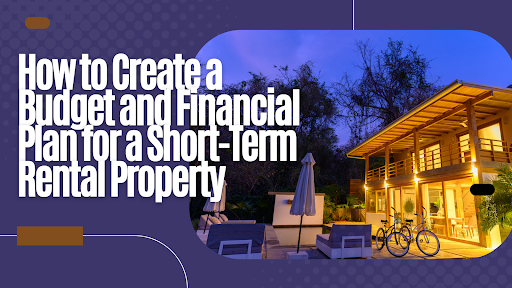Short-term rental properties are properties that are rented out to tenants for a short period of time, typically a few days or weeks. Short-term rental properties can have different types, including apartments for rent in houston tx, houses, condominiums, and even entire vacation homes. They are usually furnished and have things like kitchens, linens, and appliances. You can find them in touristy areas or in cities.
Some short-term rental properties can be a popular choice for travelers looking for a more flexible and personalized vacation experience. With a short-term rental, travelers can often choose from a wider variety of properties and locations. They also have the option to cook their own meals and do laundry if desired.
Short-term rentals can also be more economical than hotels, especially for larger groups or families who can split the cost of the rental.
Short-term rentals also provide a good opportunity for landlords looking to monetize their properties in a way that allows them to be more selective about their tenants. Today, rental property investment is getting increasingly popular and continuing to attract more investors.
This article will discuss why short-term rental investing is a good idea and how to create a budget and financial plan for a short-term rental property.
The Pros of Short-Term Rental Property Investment
There are several reasons why short-term rental investing is a good idea. Short-term rental properties, especially in popular vacation destinations, can be in high demand year-round. This can provide a consistent stream of income for the property owner.
Also, with short-term rentals, you have the flexibility to choose when your property is rented out. This allows you to take breaks or even travel while still generating income from the property.
Another reason to consider short-term rental investing is that they can often command higher rental rates than long-term rentals. Vacationers are typically willing to pay a premium for the convenience and amenities that a short-term rental can offer.
Additionally, just like any real estate investment, short-term rental properties have the potential to appreciate over time. Rental property investment can also provide tax benefits, such as deductions for expenses related to the property, like mortgage interest, property taxes, and maintenance costs.
Short-Term Rental Property: Budgeting and Financial Planning
Creating a budget and financial plan for a short-term rental property investment can be a helpful way to manage your expenses, track your income, and make informed decisions about your investment. Here are some steps you can take to create a budget and financial plan for a short-term rental property:
1.Determine Your Rental Rate
There are several factors to consider when determining your rental rate for a short-term rental property investment.
- Location: Renters are typically willing to pay more for rentals in popular, high-demand areas. Consider the location of your rental and how it compares to other rentals in the area.
- Amenities: Rentals with additional amenities, such as a pool or hot tub, may command a higher rental rate.
- Condition: A rental that is well-maintained and in good condition is likely to command a higher rate than one that needs repairs or updates.
- Length of stay: Rentals for longer periods, such as a month or more, may command a lower rate than shorter stays.
- Time of year: Demand for rentals may vary depending on the time of year. For example, rentals may command a higher rate during peak tourist seasons.
In addition to the factors listed above, you can research the rates of similar rentals in your area. You may also want to consider consulting with a real estate agent or property management company. This helps you get a better understanding of the local rental market is
2.Calculate Your Expenses
There are several expenses to consider when making a budget for short-term rental property investment. Here are some of the key expenses you should consider:
- Purchase price: This is the cost of buying the property. You would need to consult a property investment company to learn how to buy a rental property.
- Furnishings and decorations: Depending on the type of property, you may need to purchase furniture, appliances, and other items to make it suitable for renters.
- Marketing and advertising: To attract renters, you may need to spend money on marketing and advertising efforts, such as creating a listing on a vacation rental website or placing ads in local newspapers.
- Cleaning and maintenance: You will need to budget for cleaning and maintenance expenses, such as cleaning fees between renters and regular maintenance of appliances and other property features.
- Property management fees: If you hire a property management company to handle the day-to-day operations of the rental, you will need to budget for their fees.
- Taxes: You will need to budget for property taxes and any other taxes that apply to the rental property.
- Insurance: You will need to have insurance to protect the property and your investment.
By considering these expenses, you can create a realistic budget for your short-term rental property investment. It’s also a good idea to budget for unexpected expenses, as they can come up at any time.
3.Estimate Your Income
Determine how many weeks or months you expect to rent out your property each year and multiply that number by your rental rate to estimate your annual income. To do this, you will need to consider a few key factors.
The location of the property will have a big impact on its rental income potential. So before you buy a rental property, consider factors such as the local demand for short-term rentals, the competition from other properties, and the attractiveness of the area to tourists.
The type of property you choose will also affect its income potential. For example, a vacation home in a popular beach destination will likely have higher rental income potential than a studio apartment in a smaller city.
Don’t also forget to factor in expenses when estimating your income. These expenses will reduce the amount of money you make from the short-term rental.
To estimate your income, you can use a rental income calculator or create a simple spreadsheet to project your income based on the above factors. Keep in mind that actual income will also depend on a variety of other factors, including demand, competition, and the local market.
4.Calculate Your Profit Margin
To determine your profit margin for a short-term rental property, you will need to first calculate your net income from the short-term rental. To do this, you will need to subtract your expenses from your rental income.
Then you calculate your profit margin by dividing your net income by your rental income and multiplying by 100%. For example, if your rental income is $10,000 and your net income is $5,000, your profit margin would be 50%.
There may be other factors to consider, such as the amount of time the property has been occupied, the local market conditions, and any tax implications. It’s always a good idea to consult with a financial advisor or tax professional to help you understand the full financial picture of your rental property.
5.Make a Financial Plan
Based on your budget, create a financial plan that outlines how you will use your income and expenses to achieve your financial goals. This may include setting aside money for emergency repairs, investing in upgrades to increase the value of your property, or saving for retirement.
Determine what you want to achieve with your short-term rental property. Do you want to cover your expenses and break even, or do you want to generate a profit? Set specific financial goals to help guide your budgeting and decision-making.
Use a spreadsheet or budgeting software to track your income and expenses monthly. This can help you stay on top of your budget and identify areas where you may be able to cut costs.
You can always review and update your budget and financial plan as your rental business grows and changes. This can help you stay on track and make informed decisions about your short-term rental property.
Conclusion
Creating a budget and financial plan for a short-term rental property investment involves considering several factors. These include the cost of purchasing and renovating the property, ongoing expenses such as utilities and maintenance, and potential income from rentals.
It is important to carefully research the local market and competition to determine the most realistic rental rates and occupancy rates. It is also essential to set aside a contingency fund to cover unexpected expenses.
Also, make sure to review and update the budget and financial plan regularly. This helps to ensure that the investment is on track to meet financial goals. By following these steps, you can effectively manage your short-term rental property and make informed decisions about your investment.
James Martin is a passionate writer and the founder of OnTimeMagazines & EastLifePro. He loves to write principally about technology trends. He loves to share his opinion on what’s happening in tech around the world.


